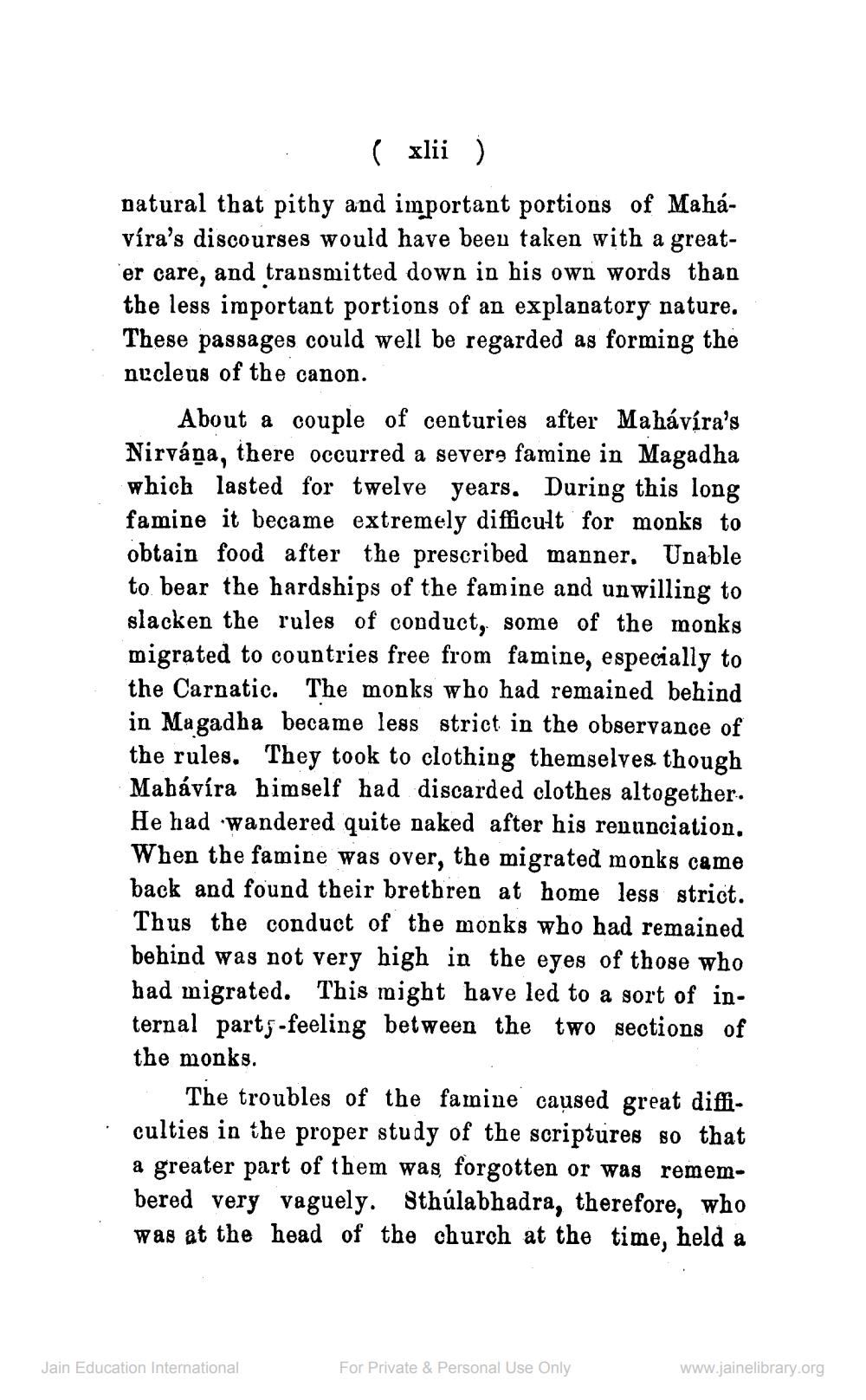________________
( xlii ) natural that pithy and important portions of Mahávíra's discourses would have been taken with a greater care, and transmitted down in his own words than the less important portions of an explanatory nature. These passages could well be regarded as forming the nucleus of the canon.
About a couple of centuries after Mahávíra's Nirváŋa, there occurred a severe famine in Magadha which lasted for twelve years. During this long famine it became extremely difficult for monks to obtain food after the prescribed manner. Unable to bear the hardships of the famine and unwilling to slacken the rules of conduct, some of the monks migrated to countries free from famine, especially to the Carnatic. The monks who had remained behind in Magadha became less strict in the observance of the rules. They took to clothing themselves though Mabávíra himself had discarded clothes altogether. He had wandered quite naked after his renunciation. When the famine was over, the migrated monks came back and found their brethren at home less strict. Thus the conduct of the monks who had remained behind was not very high in the eyes of those who had migrated. This might have led to a sort of internal parts-feeling between the two sections of the monks.
The troubles of the famine caused great difficulties in the proper study of the scriptures so that a greater part of them was forgotten or was remembered very vaguely. Sthúlabhadra, therefore, who was at the head of the church at the time, held a
Jain Education International
For Private & Personal Use Only
www.jainelibrary.org




